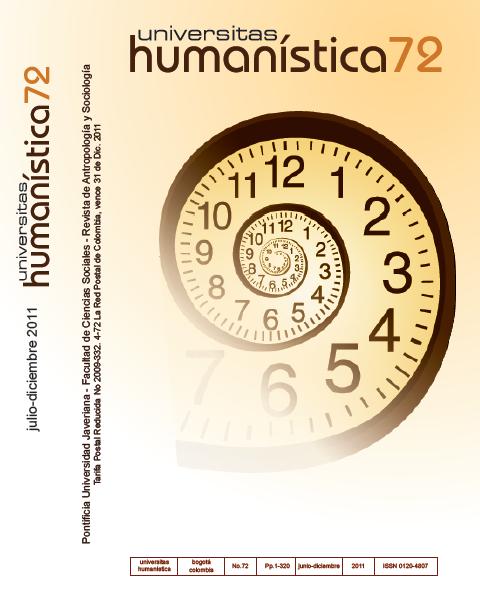Resumen
En el presente artículo se indaga por la producción de los recuerdos de los hechos de violencia en dos municipios antioqueños que desde la década del 80 han presentado alarmantes indicadores. Es así como en el municipio de San Carlos se recuerdan los hechos de violencia en el marco de una sociedad católica, con condiciones económicas homogéneas, con élites históricamente vinculadas al partido conservador, procesos acelerados de desarrollo y bajo dominios armados hegemónicos. En este escenario se construye un cierto consenso en el relato de la violencia que busca dignificar a las víctimas y que resalta los altos costos de la confrontación armada. En el municipio de Apartadó se recuerda la violencia en el marco de una sociedad pluriétnica, laica, marginal, en medio de procesos de desarrollo acelerados y dominios armados inestables. Allí se produce una memoria dividida marcada por identidades políticas, que rutiniza los hechos violentos y en ocasiones los justifica. Frente a estos casos se busca dejar la siguiente reflexión: ¿qué tipo de memorias se necesitan para no reproducir la guerra? 
La revista Universitas Humanística se encuentra registrada bajo la licencia Creative Commons Reconocimiento 4.0 Internacional. Por lo tanto, esta obra se puede reproducir, distribuir y comunicar públicamente en formato digital, siempre que se reconozca el nombre de los autores y a la Pontificia Universidad Javeriana. Se permite citar, adaptar, transformar, autoarchivar, republicar y crear a partir del material, para cualquier finalidad (incluso comercial), siempre que se reconozca adecuadamente la autoría, se proporcione un enlace a la obra original y se indique si se han realizado cambios. La Pontificia Universidad Javeriana no retiene los derechos sobre las obras publicadas y los contenidos son responsabilidad exclusiva de los autores, quienes conservan sus derechos morales, intelectuales, de privacidad y publicidad.
El aval sobre la intervención de la obra (revisión, corrección de estilo, traducción, diagramación) y su posterior divulgación se otorga mediante una licencia de uso y no a través de una cesión de derechos, lo que representa que la revista y la Pontificia Universidad Javeriana se eximen de cualquier responsabilidad que se pueda derivar de una mala práctica ética por parte de los autores. En consecuencia de la protección brindada por la licencia de uso, la revista no se encuentra en la obligación de publicar retractaciones o modificar la información ya publicada, a no ser que la errata surja del proceso de gestión editorial. La publicación de contenidos en esta revista no representa regalías para los contribuyentes.


